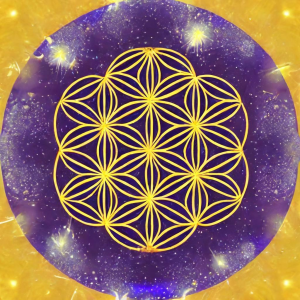
Pollen is a fine powder produced by certain flowering plants when they reproduce. During the spring, summer, and fall seasons, it's released into the air and picked up by the wind, which brings it to other plants to fertilize them. Plants that are fertilized produce seeds with similar or identical DNA so when those seeds germinate in the soil, they produce a similar plant! Creation is so Amazing !!!
Many plants release tiny pollen grains to fertilize other plants of the same species. Most of the pollen that causes allergic reactions comes from trees, grasses, and weeds. These plants make small, light, and dry pollen grains that travel by the wind.
We are also familiar with Bee Pollen which is a mixture of pollen grains collected from flowers by foraging bees. It is carried back to their hive and mixed with their saliva, nectar, and enzymes. It is a natural food source that bees use to feed their young. Bee pollen also contains a wide range of nutritious elements, including proteins, carbs, lipids, and dietary fibers, as well as bioactive micronutrients including vitamins, minerals, phenolic, and volatile compounds. We have seen photos of bees on flowers gathering Nectar. In most of those pictures, we can see the yellow or orange-colored pollen sticking to the bee’s legs.
Bees do not go to flowers to deliberately gather pollen. They are drawn to flowers to gather Nectar which is also a food source for the hive. It is part of nature’s design that Bees “gather” pollen on their legs as they move across the face of the flower. So, both the nectar and the pollen are gathered at the same time and used as food for young bees. This is also the way that flowers are cross-pollinated. Nature is very efficient that way!
When I was growing peaches in Texas, I loved to watch the Bees and other pollinators like Wasps and some Beetles crawling across the blooms. I knew these pollinators were necessary to fertilize my peach blossoms if there were going to be Peaches! Fortunately, all the Pollinators did their job and I always had peaches! They never bothered me because they were so busy pollinating!!!
Most of us are familiar with Pollen due to our allergies. Unfortunately, some humans do have an allergic reaction to certain pollen. This is the reason the “pollen count” is often shown on weather apps and weather reports. Some people can reduce their reactions by taking organic remedies. Others of us need to take antihistamines every 12 hours just to get through the day. Fortunately, pollen season does not last forever!
Bee pollen can help those of us with allergies by reducing inflammation in our system. Flavonoids and phenolic acids like those found in Bee Pollen have been scientifically shown to reduce inflammation of the human body. These can help mitigate symptoms associated with inflammatory illnesses. Studies have shown that reducing inflammation is key to preventing and treating so many common disease states. Our ancestors and native people were very familiar with natural remedies which they probably used all the time.
All the Pollinators need our help due to a loss of wildflowers and the increased use of pesticides. So much of the farm and country land that supported wildflowers has been plowed under or turned into housing developments. But, as homeowners, we can make a big difference by planting Pollinator Gardens that provide food and shelter for all these beneficial insects!
Planting pollinator gardens in our yards creates a much healthier environment for humans (that’s us), birds, frogs, lizards, and all the other invisible creatures who contribute to our well-being. Many of these wonderful creatures eat most of the insects that we don’t want, like mosquitoes! So, we don’t really need to use pesticides on our lawns and property. All we need to do is work with Nature and plant Pollinator Gardens!
Mary teaches mindfulness and spiritual practices.
She leads Heart Coherence groups and offers individual coaching.
Through her “Caring for Creation” podcast, she shares practices
for connecting with the earth and our spirituality.
No comments yet. Be the first to say something!